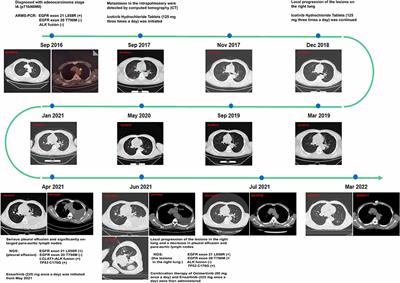EDITORIAL
Published on 19 Oct 2022
Editorial: The effect of anti-cancer drug therapies in the treatment of lung cancer
doi 10.3389/fonc.2022.1035245
- 819 views
31k
Total downloads
87k
Total views and downloads
Select the journal/section where you want your idea to be submitted:
EDITORIAL
Published on 19 Oct 2022
CASE REPORT
Published on 07 Jul 2022

ORIGINAL RESEARCH
Published on 28 Apr 2022

ORIGINAL RESEARCH
Published on 22 Apr 2022

ORIGINAL RESEARCH
Published on 13 Apr 2022

CASE REPORT
Published on 10 Mar 2022

CASE REPORT
Published on 04 Mar 2022

ORIGINAL RESEARCH
Published on 18 Feb 2022

ORIGINAL RESEARCH
Published on 31 Jan 2022

ORIGINAL RESEARCH
Published on 19 Jan 2022

CASE REPORT
Published on 05 Jan 2022

ORIGINAL RESEARCH
Published on 03 Jan 2022


Frontiers in Medicine
Frontiers in Pharmacology